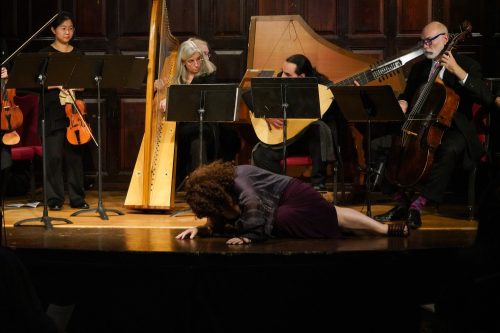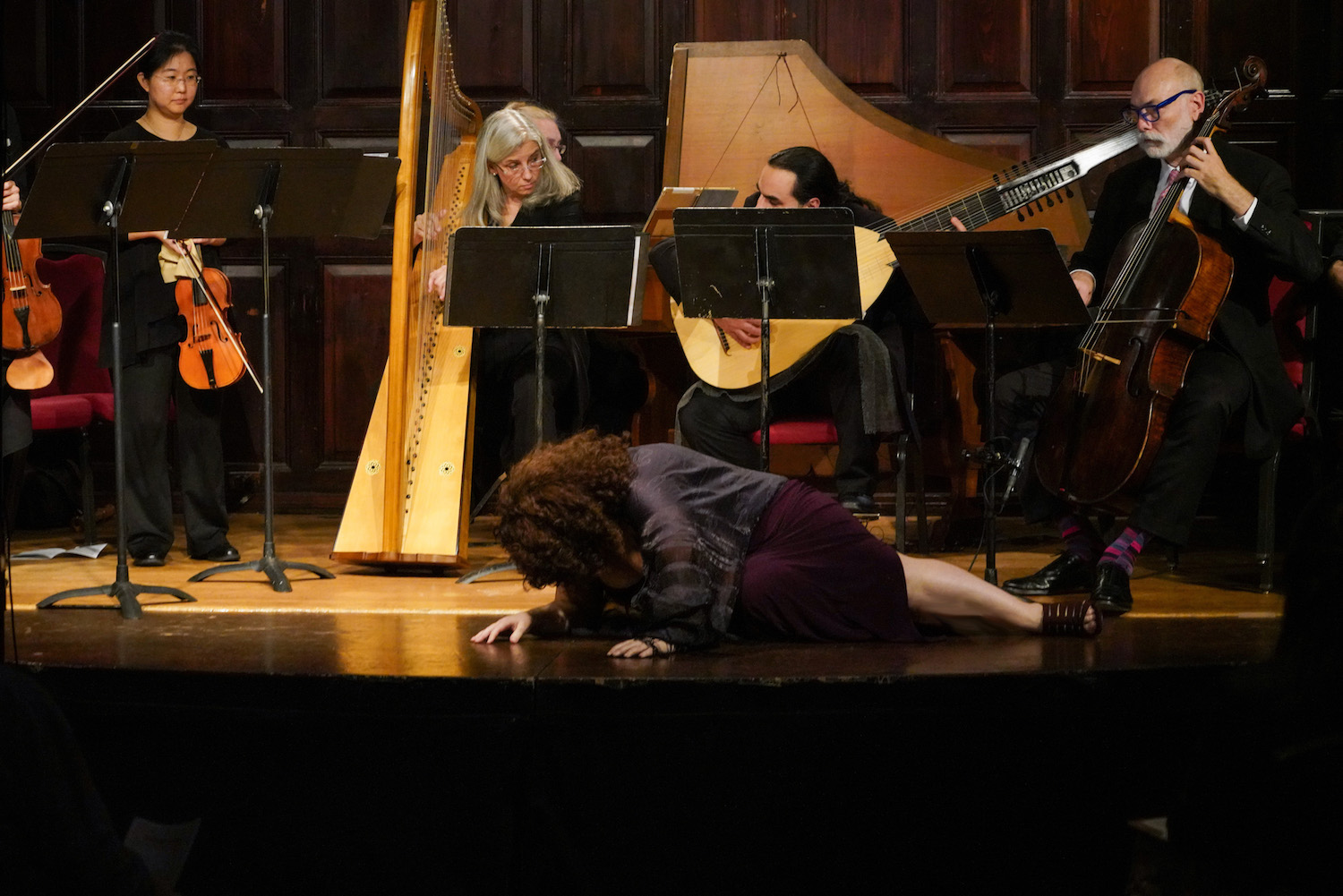 United States Various composers, Carthage Conquer’d: Dreams of Tunis in the Baroque Imagination: Presented by Salon/Sanctuary Concerts, The Players Club, New York City, 12.12.2019. (CP)
United States Various composers, Carthage Conquer’d: Dreams of Tunis in the Baroque Imagination: Presented by Salon/Sanctuary Concerts, The Players Club, New York City, 12.12.2019. (CP)

Jessica Gould, soprano
Fatima Gozlan, ney
Brian Prunka, oud
Mary Riccardi and Dongmyung Ahn, violins
Christa Patton, baroque harp
John Mark Rozendaal, baroque cello
Arash Noori, lute
Gwendolyn Toth, harpsichord
The labyrinthine, Alice in Wonderland temple to the dramatic arts and its acolytes otherwise known as The Players Club is an historic nineteenth-century mansion on Gramercy Park, built by the guilt-ridden Edwin Booth in the wake of his brother John’s assassination of President Lincoln. On this evening, from the shadowed portraits and ponderous Victoriana of its in-house theater, a sound both seductive and unfamiliar emerged from the rear. This is the ney, an Arabic flute, played by the Algerian-Hungarian virtuosa Fatima Gozlan, who processed down the aisle and ascended the stage with elegiac dignity, paying homage to a ravaged land.
As Gozlan’s spare and mournful ney concluded its soliloquy, an able baroque ensemble broke into the overture from Purcell’s Dido and Aeneas, and the unknown ceded to the iconic.
This is how the boundary-breaking series Salon/Sanctuary Concerts opened its original program Carthage Conquer’d: Dreams of Tunis in the Baroque Imagination, a meditation on fantasies of empire in both history and myth through the prism of music both Baroque and North African, in a magnificent gothic revival structure redolent of western triumphalism.
With the Dido story as touchstone, violins and basso continuo accompanied soprano and SSC Founder and Artistic Director Jessica Gould through a traversal of various treatments of the abandoned monarch. Our most familiar version of this legend from Book IV of Virgil’s Aenead, comes to us from Purcell, of course, so the program both opened and closed with selections from the English masterpiece, the overture and the final aria, ‘When I am Laid in Earth’, to great dramatic effect.
In between, there was a rich assortment of other treatments of this familiar story of the abandoned Queen by Cavalli and Montéclair, and thematically related material by Strozzi, Couperin, Kapsberger and Legrenzi. Not content to follow in the wake of other presenters, who have touched on the Dido story with no shortage of frequency, Salon/Sanctuary did not disappoint, interspersing the western baroque pieces with taksim, or North African improvisations performed by ney player Gozlan and Brian Prunka on oud (ancestor to the lute).
As Gould’s illuminating program notes (click here) tell us, taksim means ‘partition’. The North African improvisations served that function throughout the evening, offering us both an alternate soundscape from the baroque, and a window onto the reality of Maghrebi history in contrast to the Tunis of Western myth.
The programmatic triumph here is the way Gould’s program invites us to a place, and then shows us, through music, how that place has been both the object of fantasy and exploitation in the culture and history of the West. We hear the actual repertoire of an area that has been subject to painful colonialist exploitation over the centuries by France, Italy, and England, while serving as an exotic ‘Other’ onto which these western cultures could project their chimeras of exoticism, which they often did through opera.
So, we both enjoy the performed Dido stories and get pulled in by our own voyeurism, savoring the exploitation and destruction of both an individual woman and an entire part of Africa itself. A programmatic coup by any standard, Carthage Conquer’d is one of many gripping original programs that keeps this intrepid series at the forefront of the field. If mainstream press attention does not manage to keep up with the merit of this series, New Yorkers in the know know where to go for something both excellent and interesting.
It comes as no surprise that the performances were at a consistently high level across the board. The ensemble played capably, with particularly strong contributions from lutenist Arash Noori and harpist Christa Patton. The Maghrebi pair of Gozlan on ney and Brian Prunka on oud displayed virtuosity of an altogether different variety, offering us performances of nimble detail and improvisational command.
As Dido (and Cassandra, and even Apollo), Jessica Gould exhibited a dramatic range of operatic scope that brought the audience close to the inner world of each persona. The Artistic Director of this series is a performer of unusual theatrical command. She goes to the edge of character in a way that makes you feel completely pulled in and delivers performances that can be deeply involving. Acting with her whole body, her complete physical commitment broadcast Cassandra’s unease, Apollo’s hesitancy, and Dido’s agony, in the last case from the floor, impressively sung from a position of complete collapse.
Gould possesses a larger and richer instrument than one expects from typical denizens of historical performance. Previous performances have often left me with a lingering yen to hear her in a proper opera house. Gould has always been faithful to her organization’s laudable mission of presenting early music in venues appropriate to the repertoire, which means spaces that are often small. In this case, the venue complimented the visual aspect of the SSC mission beautifully. Acoustically, one felt an ample voice, rich in color, easy in both power and ornament, easily filling and sometimes pushing at the limits of the venue, as if testing to see how much it could hold. Softer moments brought us in and gave us emotional flashes etched in precision.
Like choices of historical pitch (392? 415? 440?) these kinds of daring original projects require a certain degree of compromise in order to mix together works from different temperamental universes, places, and (at times) historical periods, in order to bring home a more profound thematic point that is greater than the repertoire itself. For the early music purists, this may be a step too far (Couperin at 440???). For others who yearn for a moving, thought-provoking, and altogether transformative evening, the reward of insight is worth the momentary sense of destabilization these compromises can bring.
And if the mainstream press takes a while to catch up with what this extraordinary organization is up to, so be it.
Chris Petitt
